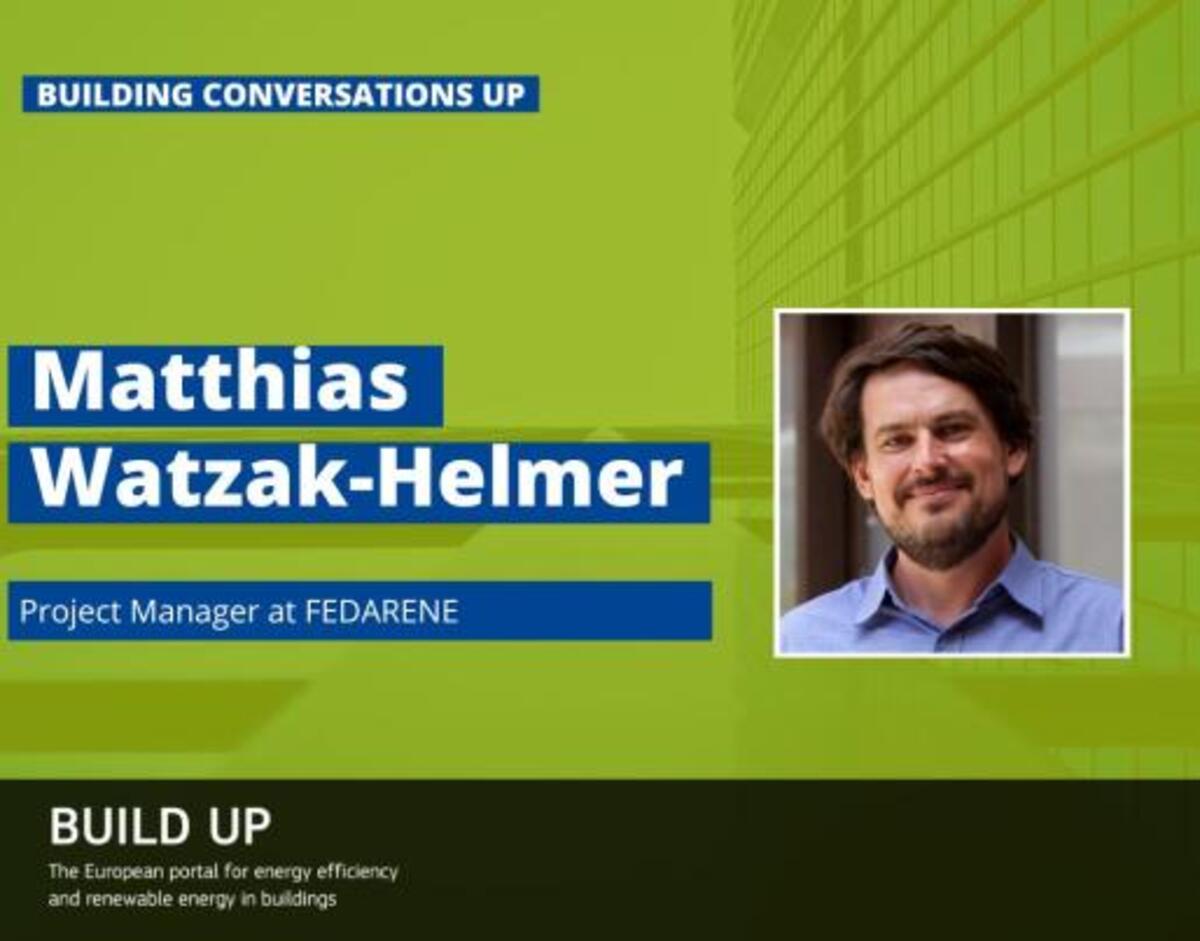Building conversations up with Matthias Watzak-Helmer
Emily Coe-Björsell

BUILDING CONVERSATIONS UP WITH... Matthias Watzak-Helmer. Matthias is a project manager at FEDARENE the European Federation of Agencies and Regions for Energy, Climate and Environment.
He focuses on supporting the implementation of regional solutions with respect to renewable energy communities, energy data management and climate adaptation.
BUILD UP (BUP): Could citizens be the means to accelerating the decarbonisation of cooling, for example, through energy communities?
MATTHIAS WATZAK-HELMER (MW-H): I believe that citizens have a crucial role in implementing the energy transition. Citizens will be either key enablers or will hinder the energy transition if they are not included in the developments properly. Citizens are the ones who suffer and benefit from the actions at the same time, and therefore the solutions have to be designed for them, and together with them, to ensure acceptance of the change. Energy communities are a key instrument to ensure broad acceptance.
The technology to decarbonise the cooling sector is available. Sustainable cooling solutions are already implemented. If we can utilise and motivate citizens to participate in community energy initiatives, decarbonisation will be substantially accelerated.
BUP: Why do you think the cooling potential has not been fully exploited in energy communities?
MW-H: From my experience, there are different reasons for not unleashing the full potential of sustainable cooling solutions in energy communities. In fact, a lot of them are like the ones that heating communities are facing. At the moment, the regulation for community solutions in the heating and cooling sector is vague or not existing. This makes it difficult for investors, interested actors, and active citizens to proceed with the implementation of their ideas as they lack planning certainty. Heating and Cooling communities, compared to implementing single solutions for houses or apartments, show great potential as they offer a larger variety of sustainable technologies and sustainable solutions, including peak shifting and demand management.
BUP: What are the major barriers in the EU to the development of sustainable cooling in energy communities?
MW-H: The transposition of the Renewable Energy Community (REC) and Citizen Energy Community (CEC) definitions to enable sustainable energy communities is progressing. More and more member states are including REC and CEC definitions in their national legislation. Unfortunately, the focus is mainly on the electricity market and the heating and cooling sector does not play a central role in the transposition so far. Regulations with respect to heating and cooling energy communities are crucial for planners and citizens to have planning certainty. I believe that community solutions can speed up the decarbonisation of the heating and cooling sector and unleash the implementation of sustainable cooling solutions. Within the project ConnectHeat, all partners are addressing these issues and working on solutions.
BUP: What is the main goal of the ConnectHeat project and what is the strategy behind the development of the seven pilot areas?
MW-H: The ConnectHeat project is aiming at decarbonising the heating and cooling sector by testing and implementing solutions in seven regions. Our strategy is to enable and support the local community to implement solutions by sharing knowledge and tools and highlighting opportunities to them. The seven pilot regions are spread across Europe (BE, BL, ES, HR, IT, DE, PT) and have different starting points and focus on different solutions and sectors. This shall ensure that we develop a set of recommendations and good practice solutions to show that community energy in the heating and cooling sector can be widely implemented and is sustainable across Europe.
Read full interview on BUILD UP!



